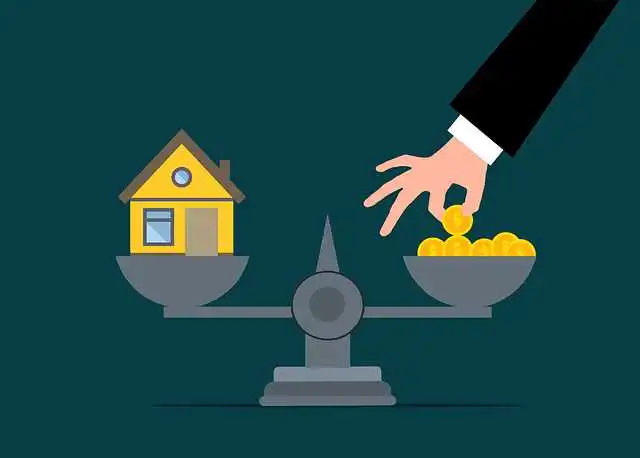Congratulations! You’ve received an offer on your property. But how do you know if it’s the best possible offer for you? Your Century21 REALTOR® will be your guide: they’ll take you through it step by step, review all the pros and cons, and make recommendations based on your personal situation. If there are multiple offers, they’ll walk you through each one, highlighting your best options, and negotiating on your behalf to get the best possible result.
Knowing that, there are still things you’ll want to be prepared for when the sale gets to this point, including price, conditions, and even how serious the buyers are.
HOW MUCH ARE THEY OFFERING?
This is the first thing most people look at, and with good reason. Everyone wants to maximize their return on investment, but the amount shouldn’t be the only factor you consider.
In the PEI real estate market, there have been instances where clients secured properties without necessarily presenting the highest bid. This can occur in situations where competing offers lack immediate financial backing, such as a deposit. An offer that is firm and accompanied by a deposit ready to be handed over to the sellers can sometimes be more attractive, leading to a successful transaction even if the offer isn’t the highest. This approach highlights the importance of not just the amount offered, but also the terms and readiness to complete the deal promptly.
An offer to purchase will often come with conditions, which can include:
FINANCING
If a buyer hasn’t been pre-approved (or they aren’t approved for the amount they’re offering), they can make their offer conditional on getting a mortgage. There’s some risk to the seller here, if the buyers don’t qualify, the deal will fall through.
In the current market where interest rates have rapidly escalated to 15-year highs, the stability of real estate deals can be significantly impacted if buyers lack pre-arranged financing. This situation, commonly observed, underscores the importance of having financial arrangements secured in advance to avoid potential breakdowns in property transactions.
A lower offer that’s firm (no conditions) can be a better option for sellers than a higher one with a financing condition.
Seeing a pre-approval attached to an offer is often preferred in real estate transactions. When dealing with multiple offers, it’s advisable to give priority to buyers who have already completed their due diligence, such as obtaining pre-approval. This strategy provides reassurance that the sale is more secure and less likely to encounter issues.
Having an offer that’s conditional on inspection adds risk. If the inspection identifies an issue, the deal could fall through. For that reason, sellers might choose an unconditional offer, even if it’s slightly lower than a conditional one.
Whether to accept an offer with an inspection condition largely hinges on the seller’s confidence in the property’s condition. For owners who have meticulously maintained their home, it might be advisable to opt for a higher offer that includes a home inspection condition, as opposed to a lower offer without it. However, it’s important to be aware that if a home inspection uncovers significant problems, it could affect the prospects of future offers.
If the buyers end up backing out, that will mean your property goes back on the market, and there’s the possibility the listing will get stale and future offers will be impacted as a result.
CLOSING DATE
You might get an offer that’s conditional on the sale of the buyers’ previous home, or one that wants to extend or shorten your stated closing date. If you’re willing to accept an offer with a closing date that doesn’t line up with what you want, you have a number of options, all of which your Century21 REALTOR® can help you figure out.
One of the options is a “rent back,” which allows the buyers to take ownership on the agreed-upon closing date, but the sellers remain in the home for a month or two and pay the new owners rent.
This strategy has been adopted by several clients in the PEI real estate market. It allows sellers to have the necessary funds to purchase a new property while also providing them with the time to find the right one. Options like bridge financing can be used to manage the financial overlap, or belongings can be stored by a moving company while the seller stays in a short-term rental. Real estate professionals often assist their clients in this process by leveraging their network to find available properties.
But ultimately, nobody really loves any of these options, and sellers tend to say no to this condition and wait for another buyer.
Be sure you understand your responsibilities as a seller during closing!
For some sellers, knowing whether the offer is coming from a family or a developer can also make a difference. It can be hard knowing your place might be torn down, and nice to know another family will enjoy the home you’ve loved.
HOW SERIOUS ARE BUYERS?
The offer might come with a higher-than-standard deposit, and even have a deposit cheque attached (especially if there are multiple bidders). There may be a personal letter explaining why they want to buy your home — maybe they’re looking for a backyard for their kids, or they’ve been dreaming about living in your building. Both are signs that buyers are serious. This can be advantageous as a seller, because it means you’re dealing with people who are just as eager to get the deal done as you are, and there may be some flexibility or room for negotiation.
IS THE FIRST OFFER THE BEST OFFER?
The effectiveness of the first offer on a property largely depends on how accurately the property is priced. If it’s set at market value in a stable market, the initial offer is likely to be a strong one. However, if the property remains unsold for two to three weeks, potential buyers might begin to question why it hasn’t sold and could start making lower offers.
When it comes to responding to an offer, there are three main courses of action you can take after discussing with your PEI REALTOR®. Firstly, you can accept the offer, ensuring that all conditions are met before moving forward with the sale. Secondly, you have the option to make a counteroffer. This involves either asking for more money or requesting the removal of certain conditions. The negotiation process continues until either party accepts or completely rejects the offer without further countering. Lastly, outright rejection of an offer is also a possibility, although this may not always be the most strategic move, especially in the case of lowball offers. Countering, even in these situations, might be more beneficial as it keeps the door open for future negotiations, providing you with a leverage if the buyers return with a renewed interest in the property.
CULTURAL FACTORS CAN MAKE A DIFFERENCE
Different communities often have varied approaches to negotiating. It’s important not to take a low offer as an insult but rather to view it as a starting point for negotiations. This perspective can help in effectively navigating through the bargaining process in real estate transactions.
When it comes to selecting the best offer for your home, you need to consider myriad factors. Your REALTOR® will help provide context to everything you look at, and give guidance based on their expertise.

RON BARRETT
I am Ron Barrett, co-owner and broker at Century21 Northumberland Realty. I and my team of 30+ professional real estate agents would be pleased to help you with all your Prince Edward Island real estate needs. I can be reached at 902.888.7238 or ron@century21pei.com

